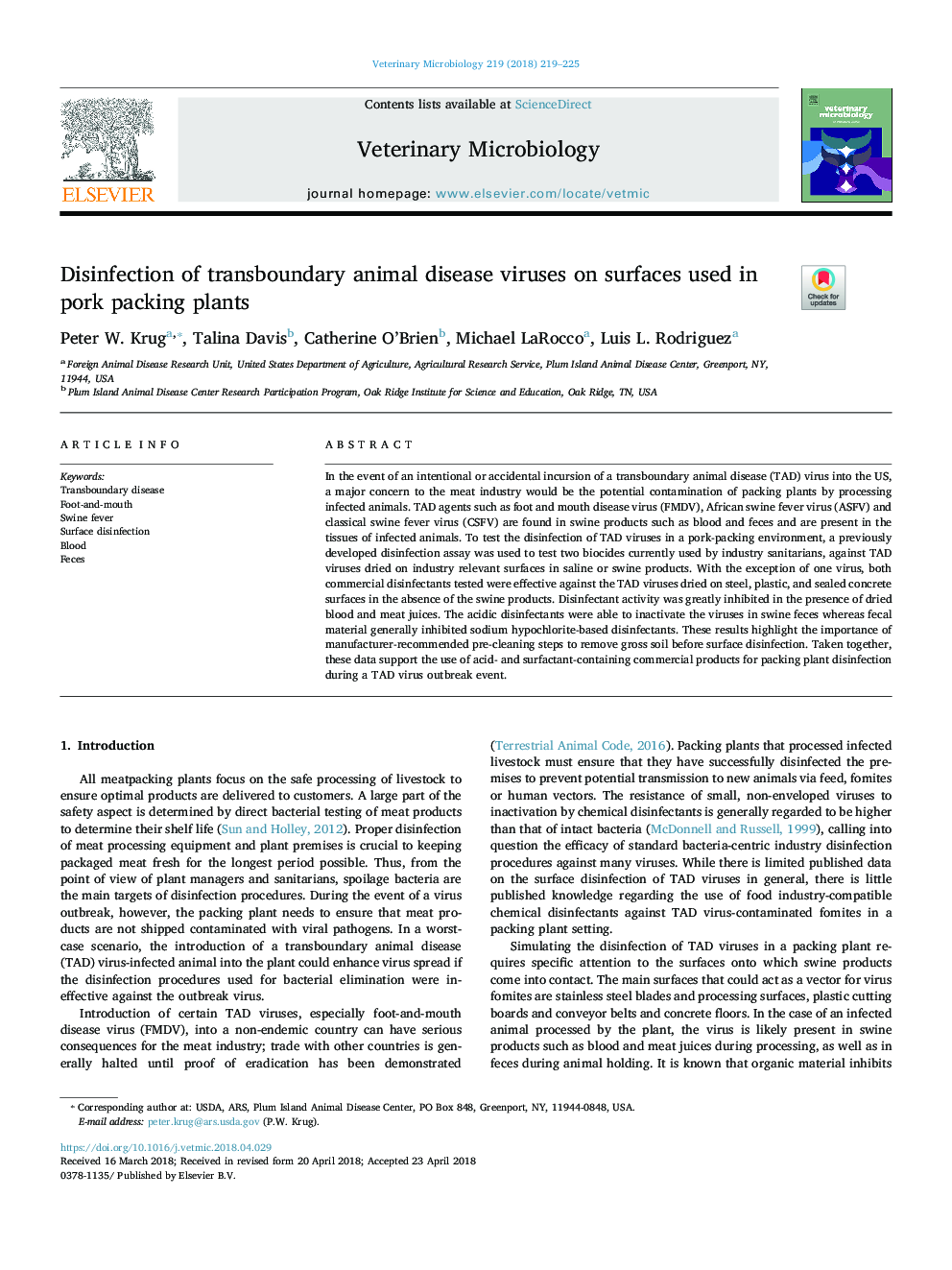| Article ID | Journal | Published Year | Pages | File Type |
|---|---|---|---|---|
| 8505380 | Veterinary Microbiology | 2018 | 7 Pages |
Abstract
In the event of an intentional or accidental incursion of a transboundary animal disease (TAD) virus into the US, a major concern to the meat industry would be the potential contamination of packing plants by processing infected animals. TAD agents such as foot and mouth disease virus (FMDV), African swine fever virus (ASFV) and classical swine fever virus (CSFV) are found in swine products such as blood and feces and are present in the tissues of infected animals. To test the disinfection of TAD viruses in a pork-packing environment, a previously developed disinfection assay was used to test two biocides currently used by industry sanitarians, against TAD viruses dried on industry relevant surfaces in saline or swine products. With the exception of one virus, both commercial disinfectants tested were effective against the TAD viruses dried on steel, plastic, and sealed concrete surfaces in the absence of the swine products. Disinfectant activity was greatly inhibited in the presence of dried blood and meat juices. The acidic disinfectants were able to inactivate the viruses in swine feces whereas fecal material generally inhibited sodium hypochlorite-based disinfectants. These results highlight the importance of manufacturer-recommended pre-cleaning steps to remove gross soil before surface disinfection. Taken together, these data support the use of acid- and surfactant-containing commercial products for packing plant disinfection during a TAD virus outbreak event.
Related Topics
Life Sciences
Agricultural and Biological Sciences
Animal Science and Zoology
Authors
Peter W. Krug, Talina Davis, Catherine O'Brien, Michael LaRocco, Luis L. Rodriguez,
